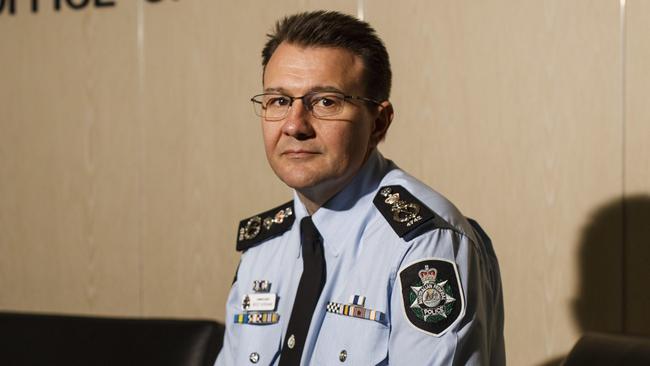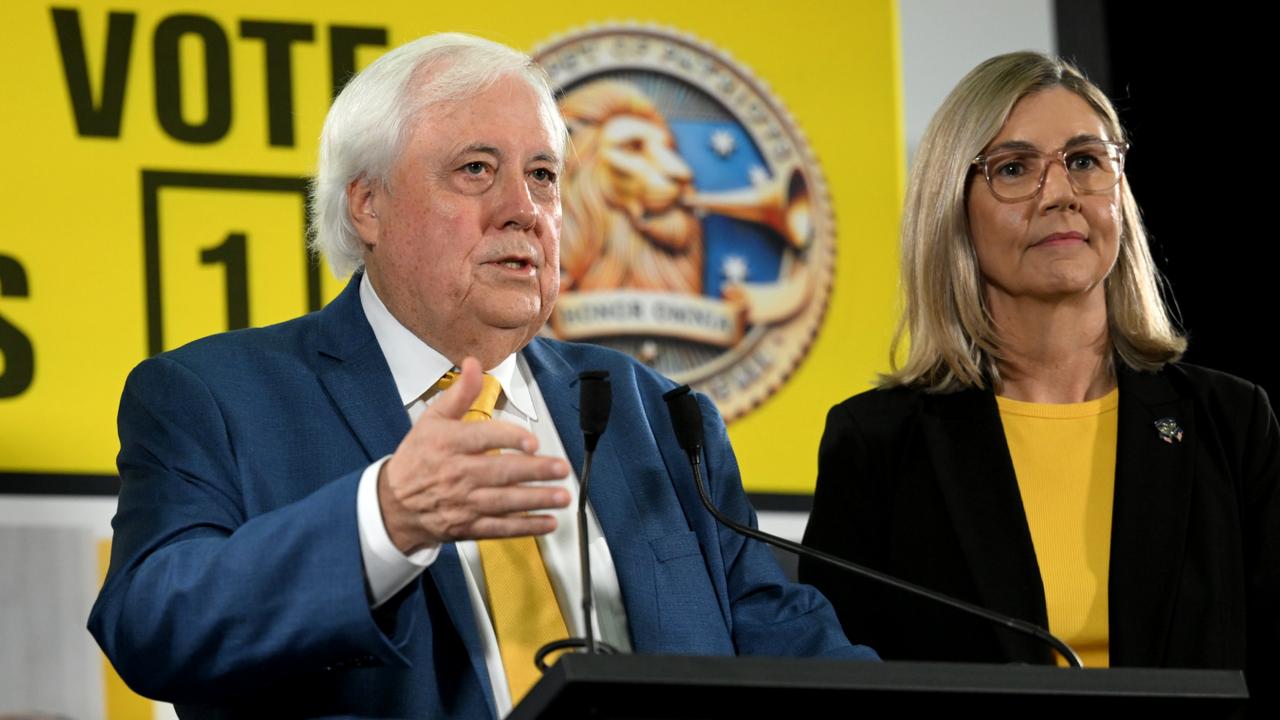Organised crime caught ripping off jobs schemes, says AFP
Offshore crime syndicates have been targeting the government’s JobKeeper, JobSeeker and early superannuation access schemes.

Offshore crime syndicates have been targeting the government’s JobKeeper, JobSeeker and early superannuation access schemes with the Australian Federal Police freezing the financial assets of a number of suspected organised crime groups.
The Australian understands that more than 50 bank accounts have now been frozen by the AFP in its investigation into potential rorting of the government’s coronavirus payments.
The accounts are believed to be linked to organised crime groups including syndicates based in other countries that have tried to defraud the superannuation scheme using false identities.
It is believed financial assets have also been “restrained” in relation to fraud against the JobKeeper and JobSeeker programs.
“We have restrained assets in relation to fraud against government COVID-19 programs and we will work with other agencies to continue to do so,” AFP Commissioner Reece Kershaw told The Australian.
The seizures come as the nation’s top cop warned the AFP was now on a war footing with concerns that a ramping up of organised crime activity could follow the opening up of state and international borders.
In an interview with The Australian, the AFP Commissioner said he had ordered his troops to “go hunting” with intelligence suggesting major stockpiles of drugs were being held offshore with the risk that, once COVID-19 restrictions began to ease, criminal networks would attempt to flood the country.
With known cartels unable to get drugs into Australia through the “air stream”, traffickers were shifting their methods, routes and drug sources in response to strict COVID-19 restrictions.
Traffickers also were looking to identify alternative source regions, with traditional drug ventures from Mexico and other Latin American countries having been thwarted by the pandemic.
The development has led to an increase in methamphetamine production in Australia and the use of different transport methods to get around state border closures.
“They are planning major shipments into Australia … the price has gone up which is, normally an indicator of supply,” Mr Kershaw said.
“They have stockpiled offshore … And they continue to be a global threat and it’s ever increasing. We are making sure, with COVID-19, we have been busy responding and looking at the criminal environment and keeping up the intelligence.
“We will start to see more activity and local distribution as the borders come down.
“And they will try and use innovative ways to get it into Australia. As things get more relaxed we will see an increase in distribution of drugs … methamphetamine, cocaine and MDMA are our main issue.”
Mr Kershaw said the increase in transnational and organised crime was a primary target alongside counter-terrorism, which had not abated during the pandemic with attempted recruitment still a major concern.
He said he was taking the force in a different direction, having “thinned” out the senior officers’ ranks to pour more resources into the frontline across priority crime groups including counter-terrorism, organised and serious crime, child exploitation, fraud and cyber crime and foreign espionage.
“Organised crime has increased as a threat. The crime is globalised … Most of our targets sit offshore. From firearms, drugs, money laundering. We will be mobilising our international network … most of our people wear formal business attire. I am saying: ‘Wear T-shirts and jeans, out in the field.’ I want them to go hunting.”
So far this year the AFP has seized more than $260m in assets from criminals increasingly using civil courts, with a target of $600m, which would be a record for the AFP.
“We are going into full disruption mode … seizing assets … with a fully armed criminal confiscation taskforce,” he said.
“We have one of the best capabilities in asset seizures.
“What we do is say with these latest frauds against JobSeeker and JobKeeper and superannuation … we’ve been restraining assets. That’s where it gets ugly for criminals because it’s civil prosecution and only the balance of probability.
“Sometimes when you bust open these frauds — and this is what has happened with the superannuation one — it actually opened up others on the way through.”
Mr Kershaw warned that organised crime gangs were starting to come together and operate like cartels.
“I have said (to staff) I want you to cause maximum damage to the criminal environment in all of the crime types.
“We need to be more aggressive in dismantling these syndicates. What I’m seeing is the list is growing, the organisations are growing and that means we need to do more … and that’s just in the organised crime space.”




To join the conversation, please log in. Don't have an account? Register
Join the conversation, you are commenting as Logout